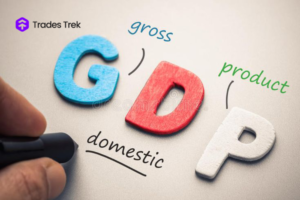Value investing is one of the most dependable, tested investment strategies that investors have employed for decades and, when appropriately implemented, can generate enormous returns on the stock market. This investment strategy aids investors in understanding how to build long-term wealth in the stock market.
Value investing offers a solution to the problem of knowing just when to purchase equities to reap significant rewards. When there is good or negative news, the market overreacts, which affects market volatility that doesn’t match the company’s long-term fundamentals. Investors typically look for good possibilities to find companies selling for less than they are worth.
Value investing is researching to identify these covert stock sales and purchasing them at a discount from their market value. Investors may receive hefty payouts for long-term purchases and holdings of specific value equities.
Metrics for Value Investing
To determine a stock’s valuation or intrinsic value, investors employ a variety of indicators. A company’s inherent value results from a combination of fundamental and financial elements, including its brand, business model, target market, and competitive advantage. Economic research examines a company’s financial performance, including revenue, earnings, cash flow, and profit. A few indicators used to assess a stock’s worth are as follows:
Price-to-book (P/B), often known as book value, is a ratio that assesses a company’s assets against its stock price. If the undervalued stock and the company are not experiencing financial difficulties, the price must be greater than the value of the assets.
Price-to-earnings (P/E), which displays the company’s history of earnings, can be used to assess whether the stock price is fairly valued. The cash left over from a company’s activities or revenue after all costs are deducted from free cash flow.
Free cash flow is the money left over after all expenses, such as operational costs and significant acquisitions, known as capital expenditures, such as the purchase of equipment or the expansion of a manufacturing facility, have been paid. If a corporation produces free cash flow, it will have extra funds to repurchase shares of stock, pay dividends to shareholders, pay down debt, and invest in the company’s future.
Of course, the research uses a wide range of additional variables, such as examining debt, equity, sales, and revenue growth. If the comparative value—the stock’s current price about the company’s underlying worth—is favourable after considering these indicators, the value investor may choose to buy shares.
Value investing differs from investor to investor depending on approach and technique. However, value investors adhere to some common principles. In this post, we’ll go a step further and examine value investing strategies to boost your stock market wealth.
Buy Companies Instead of Stocks
Most investors enter the stock market with the idea that they are there to make money rather than as stakeholders in the business. Investors adopting this mindset must consider the company’s operations before investing their capital. Instead, they invest their funds where their brokers, friends, and colleagues will do.
No investment, regardless of how alluring the entry point, can outperform the underlying firm, especially over the long run. This truth is something investors must keep in the back of their minds.
Love the Company You Invest In
You are constantly passionate about the person you love. Your entire focus is discovering more about that individual, his interests, and any other information you can learn about him. Additionally possible in the stock market is this scenario. Given that you picked that firm out of many alternatives, you must genuinely love it to be successful in any business. Valuing the business is essential and will allow you to thoroughly investigate, examine, and learn everything there is to know about the industry, enabling you to make wise judgments to ensure your success.
Discover Well-Defined Businesses
A corporation is not a good one to own stocks if it is difficult to understand and complex. A solid business must have clear objectives, and poor management can obliterate even the most cutting-edge enterprises. A corporation needs managers of character, intelligence, and commitment.
Managers that behave like owners are what value investors want. The most effective managers pay little attention to the company’s market worth and concentrate on expanding it to maximize long-term shareholder value. When managers behave like employees, they frequently prioritize short-term gains to receive a bonus or other performance incentives, sometimes at the expense of the company’s long-term success. There are several methods to evaluate this, but the amount and manner of payment are frequently a dead giveaway. If you think like an owner, you’ll pay yourself a fair wage and rely on stock market profits for bonuses. At the absolute least, you need a corporation that expenses its stock options.
Ignore the Market— Most of the Time
Consider the market when entering or leaving a position. If you treat purchasing stocks like purchasing a business, you should keep them for as long as the fundamentals are sound. Sometimes you could sell an investment for a profit and hold an unrealized loss. You must understand how market volatility works.
There are many good reasons to sell a stock, but a value investor should consciously proceed when buying and selling. When you sell an investment, you expose your portfolio to capital gains, and you typically have to deal with loss to make up the difference. Transaction costs for both sales result in a more significant loss and a smaller gain. You can avoid capital gains on your portfolio by holding investments with unrealized gains for an extended period. You gain more from compounding when you avoid capital gains and transaction fees.
Margin of Safety
Value investors need some leeway in their value calculation, and they frequently determine their own “margin of safety” depending on their risk appetite. One of the cornerstones of practical value investing is the margin of safety theory, the idea that buying stocks at a discount increases your chances of making money when you sell them later. If the stock doesn’t perform as you had anticipated, the margin of safety also reduces your risk of financial loss.
Market Efficiency is Low
The efficient-market hypothesis contends that since stock prices already consider all relevant information about a company, their price always reflects their value. Value investors do not subscribe to this theory. Value investors think stocks could be overvalued or undervalued for several reasons.
For instance, an underpriced stock may result from the economy’s lousy performance and the panicked selling by investors. Alternatively, a stock may be expensive due to excessive investor enthusiasm for an unproven new technology. Based on news such as disappointing or unforeseen earnings announcements and product recalls, psychological biases can drive a stock price up or down. Undervalued stocks could be because experts and the media don’t fully cover them when they trade off the radar.
Stay Away From the Crowd
Value investors don’t go along with the crowd, which is one of their many contrarian traits. In addition to rejecting the efficient-market idea, they frequently sell or remain silent while everyone else buys. They buy or hold when everyone else is selling. Instead, if the financials look good, they will invest in unknown enterprises. They also reevaluate well-known firms’ stocks when their prices have fallen because they think these businesses can bounce back from setbacks if their fundamentals are sound and their goods and services are still high quality.
The inherent value of a stock is all that matters to value investors. They consider purchasing a stock for what it is: a stake in a firm. Regardless of what others do or say, they want to own confident businesses with solid principles and financials.
Diligence and Patience: Essentials for Value Investing
Financial analysis and particular subjectivity are involved in determining a stock’s actual intrinsic value; when two investors examine the same company valuation data, they may reach different conclusions.
Some investors place little trust in forecasting future growth since they consider the current financials. The fundamental idea behind value investing is to buy assets for less than they are now worth, hold them for a long time, and make money when they reach or exceed their intrinsic value. It only offers immediate satisfaction. You cannot anticipate purchasing stock on Tuesday for 500 NGN and selling it for 100 NGN on Thursday. Instead, you might have to wait years for your stock investments to start paying off and even experience some financial losses.
To Sum Up
Wait until you can invest when the price is low enough to give you a margin of safety. Stay within your area of expertise, and if you need help determining whether an investment opportunity is correct, it’s best to live on a fixed income until you find one. Avoid making careless mistakes.




